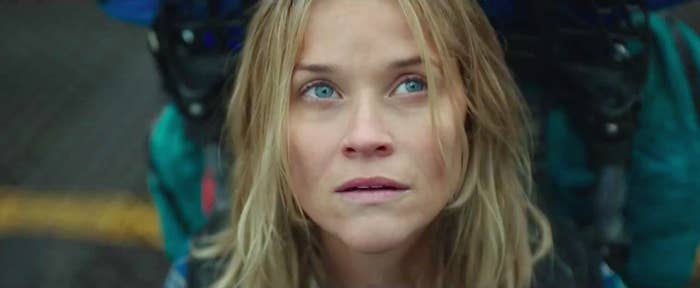
TORONTO — It is no simple task to shake off the squeaky-clean title of America's Sweetheart, but Reese Witherspoon appears to have finally done it. All she had to do was get her hands dirty.
Two upcoming films featuring the 38-year-old actress recently screened at the Toronto International Film Festival — Wild and The Good Lie — and in both, Witherspoon plays characters who are a far cry from the high-achieving women she built her career playing in films like Election, Legally Blonde, and Sweet Home Alabama.
Those kinds of characters — buoyant, sharp, tough, and not to be underestimated — became Witherspoon's movie star brand, up to and including her Oscar-winning role of June Carter Cash in 2005's Walk the Line. In that film, Joaquin Phoenix played the deeply flawed Johnny Cash, a talented musician saddled with demons and prone to self-destructive behavior. Witherspoon's June, while not nearly perfect, was his savior, the far calmer port in their stormy relationship. Her big night at the Academy Awards was a crowning point in Witherspoon's career, officially canonizing her as one of Hollywood's biggest and brightest A-list stars. But Witherspoon was still also seen as Hollywood's most prominent A student, studious and responsible — and not particularly vulnerable.
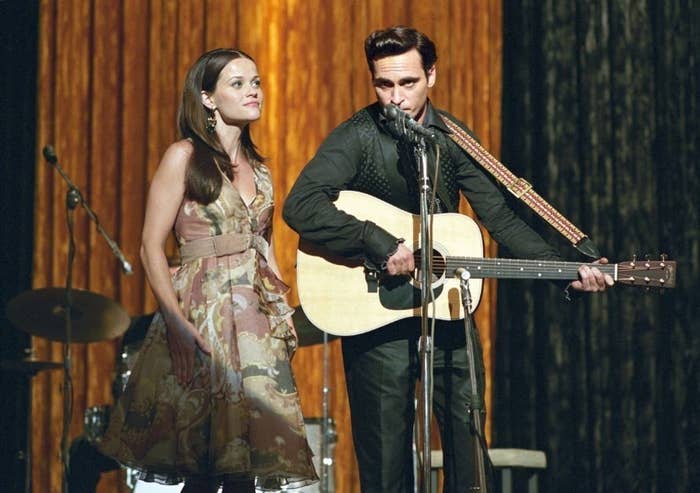
And like so many other Best Actress winners before and since, the heat of that spotlight wilted Witherspoon's career just as it was hitting full bloom. She took on "prestige" movies like Rendition and Water for Elephants that failed to capture the live-wire spark that had endeared Witherspoon to audiences in the first place. When she tried to swing back to a commercial Hollywood picture, with 2012's action-comedy This Means War, her role was so soufflé light that any number of other actresses could have played it (and made the same shallow impression).
With The Good Lie and especially Wild, Witherspoon has finally found roles that capture her flinty intelligence and resolve, but — thankfully, refreshingly — also allow her guard to drop, and for a more richly complex actress to emerge.
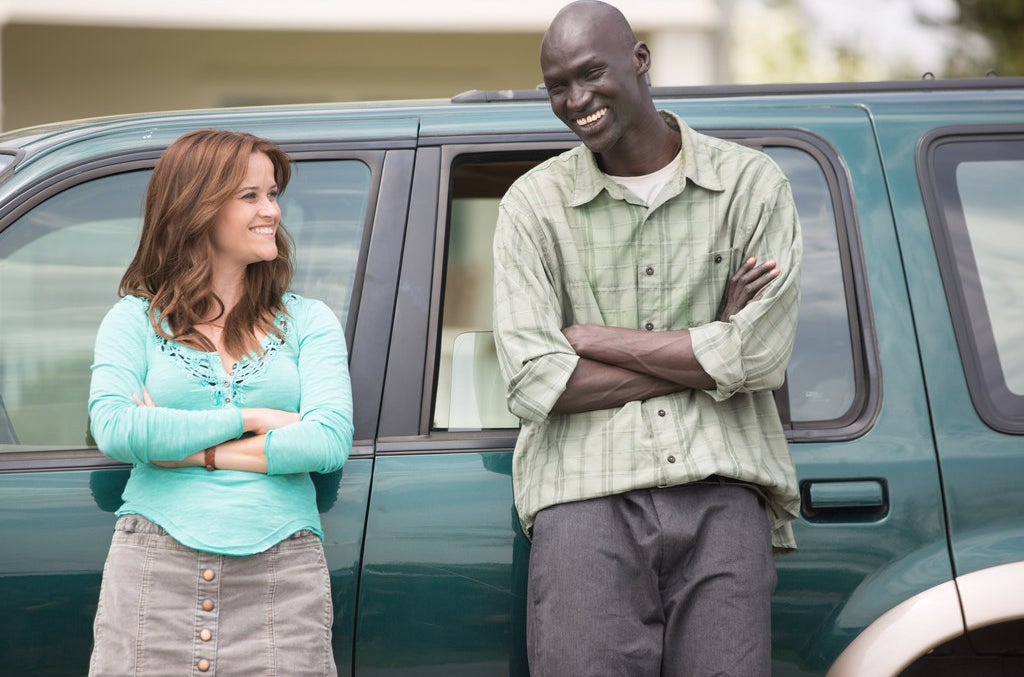

In The Good Lie, in fact, while Witherspoon has top billing, she doesn't even dominate the movie as its central star. The fact-based film instead starts and largely stays with the Lost Boys of Sudan, child refugees who fled a brutal civil war in their own country by trekking hundreds of miles on their own across an unforgiving landscape. After 13 years spent growing up in a Kenyan refugee camp, three of these refugees — the earnestly ambitious Mamere (Arnold Oceng), the quiet and pious Jeremiah (Ger Duany), and the excitable and homesick Paul (Emmanuel Jal) — are plonked into Kansas City as part of a United Nations relocation program, with essentially zero preparation for the dizzying culture shock awaiting them. (Duany and Jal are actual Sudanese refugees, part of director Philippe Falardeau's desire for authenticity.)
They are greeted by Witherspoon's flustered Carrie, who we meet roughly 40 minutes into the film as she skips out on a one-night stand and rushes to pick up Mamere, Jeremiah, and Paul at the airport. Carrie, tasked by her employment agency with finding jobs for her new charges, isn't particularly warm at first, exasperated more by their inability to, say, know how to pick up the telephone when she calls. Her home is a disaster of empty takeout boxes, discarded laundry, and stacks of paperwork — upon seeing it, Mamere says he finally understands why Carrie doesn't have a husband.
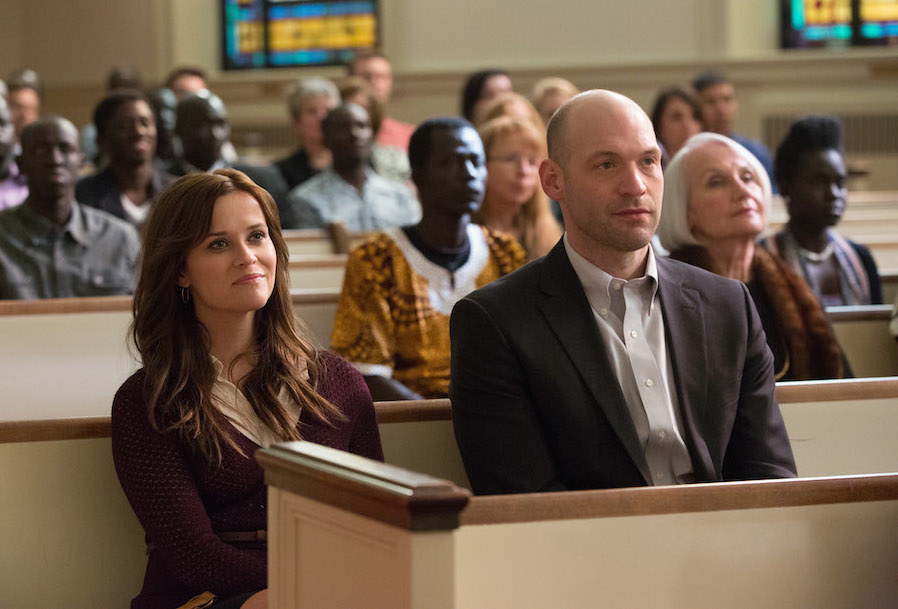
In another film, or with another actress, Carrie would be our dewey-eyed conduit to "understanding" the plight of these Lost Boys, and watching her grow to be a kinder, more friendly person would the film's true arc. In Falardeau and Witherspoon's hands, however, Carrie does change, but subtly, and without much fanfare. As it should be, we spend far much more time tracking Mamere, Jeremiah, and Paul as they struggle with their new lives and strive to reunite with their sister Abital (Kuoth Wiel), who was sent to live in Boston after they all arrived in America. Meanwhile, liberated of having to carry the film's central story — and of having to play a woman who is all things to all people — Witherspoon may not have all that meaty of a role, but she is looser and more natural that she's been in ages.
With Wild, by contrast, Witherspoon is the film, and if The Good Lie keeps to the middlebrow conventions of an uplifting true story, Wild's tough, fractured portrait of its real-life subject, author Cheryl Strayed, pushes Witherspoon into what is arguably the richest, most alive performance of her career.
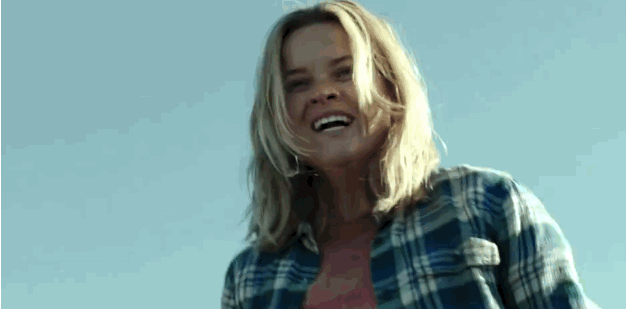

We first meet Witherspoon-as-Strayed as she is roughly halfway through her 1,100-mile trek through the Pacific Crest Trail. She's sitting atop a cliff, screaming in what sounds like orgasmic ecstasy but is actually pain, as she removes her too-small hiking boots and socks to reveal a big toe reduced to bloody hamburger. As she winces and removes what is left of her toenail, the boot falls down a steep cliffside. In a flash of rage, she grabs her other boot and throws it down the cliff, screaming, "Fuck you, bitch!"
In roughly five minutes, we already understand this is unlike any role Witherspoon has ever had before — and the film has hardly even started.
Director Jean-Marc Vallée, working from author Nick Hornby's adapted screenplay of Strayed's 2012 memoir of the same name, continually hops through Strayed's deeply complicated life as her hike forces her to confront the reasons she has set out into the wilderness with a gargantuan hiking pack and zero hiking experience. We come to understand that Strayed had been serially cheating on her husband (Thomas Sadoski) and abusing heroin, a sharp downward spiral that began with the sudden death of her mother (an incandescent Laura Dern).
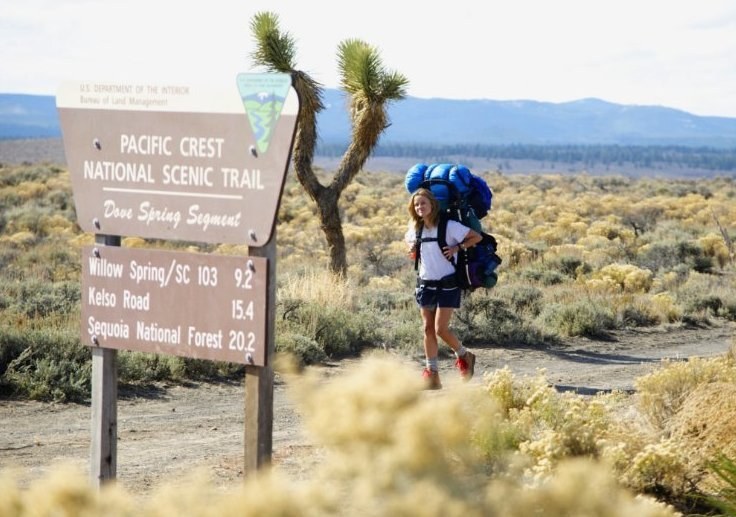
On paper, these problems could seem perhaps a little well-trod for an intimate character drama, and a downer at that. But Witherspoon breathes such vital life into them that it elevates Strayed's story into a deeply poignant portrait of grief and regret. She is the tenacious fighter we remember so fondly (most recently, in Witherspoon's infamous arrest video), but she also allows herself to be fragile, and angry, and a dervish of harmful choices. It helps enormously that from the first frame to the last, Vallée refrains from dipping into sentimental cliché — in a way that he couldn't quite avoid with Dallas Buyers Club, actually. And Vallée's cinematographer Yves Bélanger captures Strayed's natural surroundings with an Ansel Adams-like clarity that gives Strayed's emotional journey that much more epic heft.
It's Witherspoon, however, who made this movie happen: She optioned the movie rights for her production company Pacific Standard, and is one of two credited producers. She clearly understood that this time, she would be the one to play the person who is saddled with demons and prone to self-destructive behavior. But what makes Wild such a stirring, remarkable story is that Strayed becomes her own path to a better life; she saves herself in a way no one else can. It's a lesson that Witherspoon appears to have taken to heart — the only savior her career needed was herself.
The Good Lie is scheduled to open on Oct. 3, and Wild on Dec. 5.
An earlier version of this story misidentified the Pacific Crest Trail as the Pacific Coast Trail.

